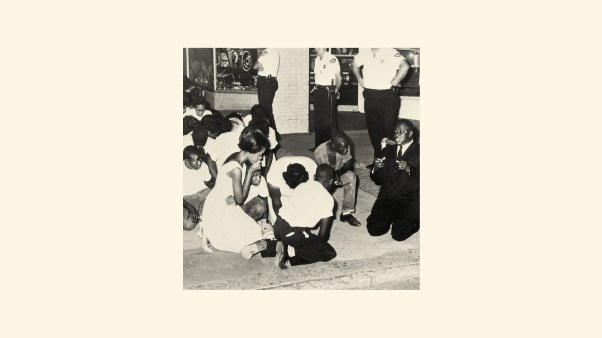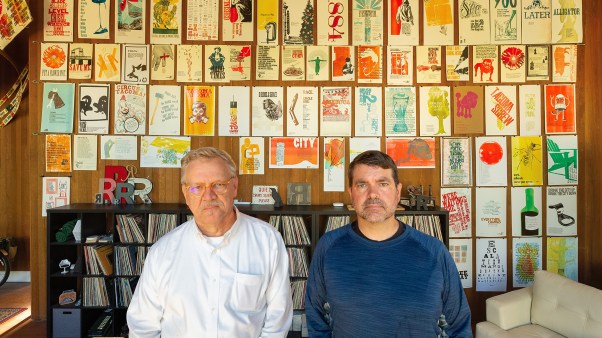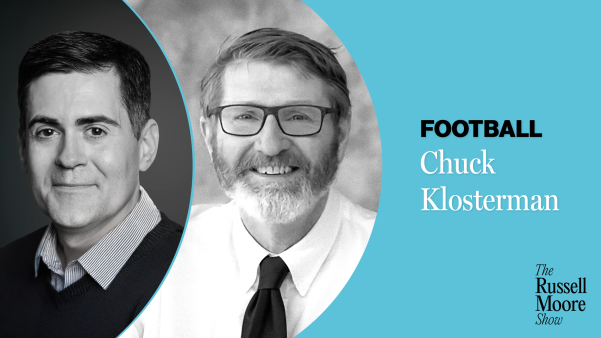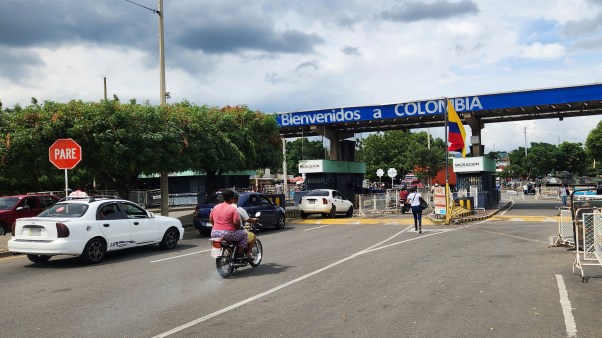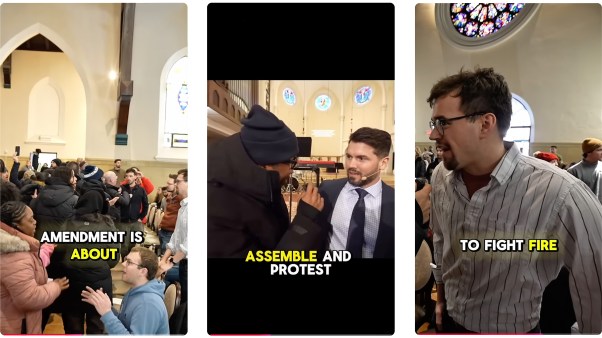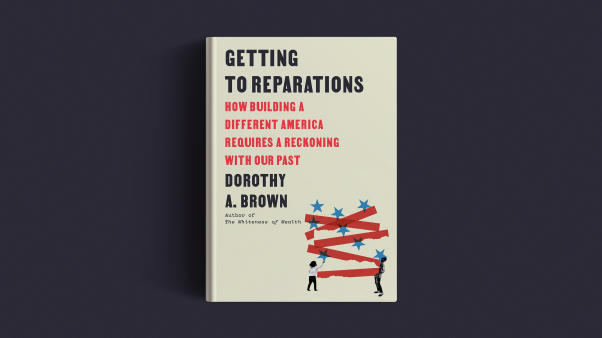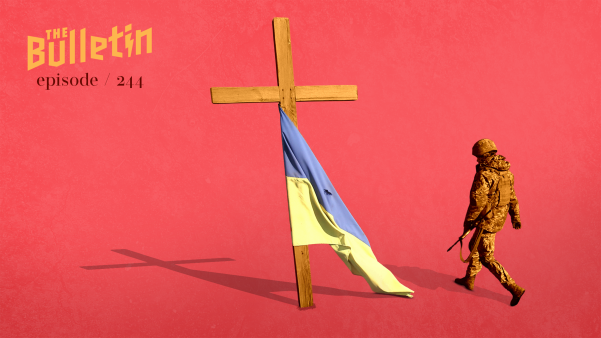For many people who live in Paris, the Summer Olympics are going to be kind of a problem. In fact, though the Games of the XXXIII Olympiad are not scheduled to start until the end of July, Parisians were already bracing themselves this spring.
Metro ticket prices will double, for example, and some have questioned whether the system can handle the expected influx of 16 million people. Student housing has been requisitioned to accommodate staff planning the Olympics. There is concern about the river Seine, the buildings, the work required to make the city accessible for Paralympic athletes, and even vulnerability to a terrorist attack.
French support for the Olympics has fallen 11 points in the last two years; in the region around the capital, only one out of five people now say that having the Olympics in Paris is “a very good thing.” Forty-four percent say it’s bad or very bad.
Matthew Glock is not one of them.
“I see the Olympics being a catalyst,” said Glock, an American church planter who has lived in France for more than 30 years. “It will allow churches and associations to come together and work together for the good of the city.”
Glock has been at the forefront of organizing evangelical Christians so that they can coordinate their efforts “to radiate the love of Jesus Christ in word and deed” during one of the world’s largest sporting events.
There are more than 70 evangelical churches in Paris, not counting groups that meet in homes. Only about 1 percent of the population of France is evangelical, but that’s still more than 745,000 people.
Ensemble2024 launched late last year to bring them together. The evangelical umbrella group works with about 20 groups, including sports ministries, Christian resource ministries, evangelism ministries, student ministries, and music ministries. The Conseil National des Évangéliques de France (CNEF), which represents about 70 percent of French evangelicals, is involved, as are a number of international evangelical organizations, including Youth With A Mission, Operation Mobilization, the International Mission Board, and Greater Europe Mission.
“We are creating the framework that supports the initiatives that are happening,” Glock told CT, “to better serve our city.”
The group is planning all sorts of events, from friendly community athletic competitions and viewing parties to a hymn sing at a church “a stone’s throw from the main intramural sports complex.” There will be chaplains available to Olympic competitors and times when Christian athletes can share their testimonies.
There will be no direct evangelism, however. Ensemble2024 has committed not to proselytize in order to avoid controversy in secular France.
Evangelicals, who supported the legal secularization of the country when it was instituted in 1905, have sometimes felt targeted by authorities suspicious of any religious activity more fervent than nonpracticing Catholicism. A few years ago, one state minister said the government should keep a close watch on evangelicals, claiming without evidence that they get a lot of foreign funding. Another agreed and said that evangelicals also require people to have their virginity certified before marriage, which isn’t true.
CNEF has raised concerns about religious freedom, including the freedom to evangelize, with the UN. The evangelical council sees the Olympics as an opportunity to demonstrate that evangelicals are really not harmful to French society. In fact, CNEF said in an official statement, Christians deeply resonate with the values of the games: friendship, respect, excellence, determination, equality, inspiration, and courage.
Ensemble2024 organizers hope to demonstrate their commitment to those common values as they serve people during the Olympics. They will show people Jesus more than they will talk about him.
“We are committed to a benevolent approach that meets people’s needs,” the Ensemble2024 website says.
The umbrella group hopes to see evangelical initiatives to help people who are homeless, raise awareness about prostitution and sex trafficking, and take care of the environment with trash and recycling campaigns.
Some churches may provide translators, with name tags that say, “Je parle ____” (“I speak ____”) to help the many tourists who aren’t fluent in French or English. Others, located on main pedestrian routes, will make their facilities available to the many tourists in the city.
“Are you ready to open your doors … and your toilets?” one Ensemble2024 resource guide says. “France is facing real challenges in terms of logistics: enabling many visitors during the Games in summer 2024 to have access to toilets, water points, transport options for athletes, etc. As Christians, we want above all to be there to help.”
While regular toilet cleanings and free feminine hygiene products will show the love of Christ to international visitors, other efforts are focusing specifically on French people.
The Alliance Biblique Française (French Bible Alliance), for example, has put out a French-language edition of the New Testament that includes the testimonies of 16 prominent sports figures, including the French handball champion Joël Abati and American sprinter Allyson Felix.
The New Testament was released in April, instead of later in the summer, because the goal is to get more French people to read the Bible. The Alliance is working with the Syndicat des libraires de littérature religieuse (Union of Religious Literature Booksellers) and held multiple events in in March—France’s “month of the Bible”—and April.
“We want to have a discourse vis-à-vis our contemporaries, the French population,” said Nicolas Fouquet, a Bible alliance project leader, “to address neighbors more than foreign tourists.”
Evangelical efforts to coordinate and stay out of each other’s way has been notable. Some ministries are even making the decision to step back to leave room for others.
“We are actually taking an unofficial one-year hiatus because we’ve encouraged our member associations to join in wholeheartedly with Ensemble2024,” said Tom Hawkins, who works with the sports ministry Go+ France. “So our efforts are coordinated and not in competition with each other.”
Hawkins said he expects the Olympics to lay the groundwork for a lot of future ministry opportunities. Seeing different Christian groups come together gives him hope about future evangelical cooperation in France.
“Go+ and its members will be able to profit from the legacy of partnerships created for the Games,” he said.
Legacy has been one of the buzzwords of Olympics organizers. They want to connect the 2024 games with the 1924 games that were also in Paris and convince Parisians that the work of hosting and all the inconvenience of living through the Olympics will be worth it in the long run.
A lot of the people living in Paris are unconvinced by the argument. But evangelicals, working together and coordinating outreach for the Games, think the Olympics will certainly leave behind something important.
“On a spiritual level,” Glock told CT, “we are very keen to see all that we do with an eye towards ‘What is the legacy?’”
Kristen Vonnoh is a freelance reporter in France.





